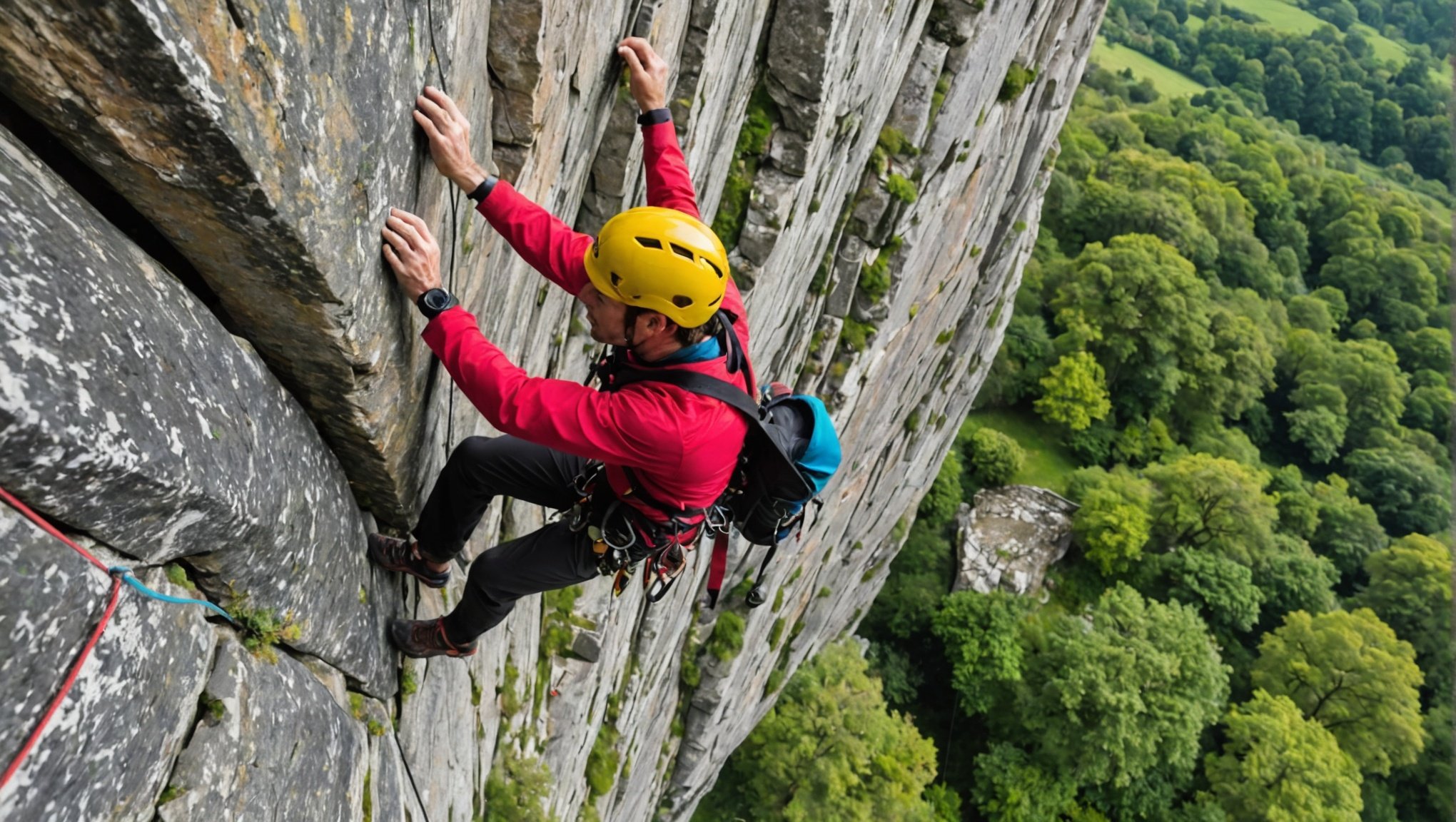The question of how outdoor physical activities can enhance mental health has always been an intriguing subject for scholars and health enthusiasts alike. One specific activity that has recently begun to gain attention is rock climbing. This article explores the potential benefits of regular rock climbing, particularly on mental clarity for UK adults.
The Connection Between Physical Activities and Mental Health
Before delving into the specifics of rock climbing, let’s first establish the link between physical activity and mental health. Various studies have reflected the significant role that regular exercise plays in improving mental well-being.
Also to discover : What Are the Effective Ways to Manage Stress in UK Healthcare Professionals?
A study published in PubMed Central (PMC), an archive of biomedical and life sciences journal literature managed by Google Scholar, revealed that individuals who are physically active have a lower risk of developing depression. The study concluded that regular physical activity can decrease the likelihood of experiencing depressive symptoms by up to 15%.
This is not an isolated finding. Numerous health studies suggest that exercise can improve mental health by reducing anxiety, negative mood, and improving self-esteem and cognitive function. Exercise is known to stimulate the production of endorphins, the body’s natural mood lifters, thereby enhancing one’s mental clarity.
In parallel : How Does Regular Exposure to Natural Light Affect Mood in UK Office Workers?
The Benefits Of Outdoor Physical Activities
Outdoor activities, specifically, have been associated with added benefits beyond those seen with indoor physical activity. A study published on Google Scholar highlights the positive impact nature has on mental health.
Subjects exposed to natural environments showed a significant decrease in heart rate and cortisol levels, which are markers for stress. This study suggests that the natural world has an inherent calming effect that can provide mental clarity and reduce feelings of stress and anxiety.
In addition to the calming effect, outdoor activities expose individuals to sunlight, which improves vitamin D levels. Low vitamin D has been associated with depression and mood disorders, hence, outdoor activities can indirectly improve mental health by boosting vitamin D levels.
Rock Climbing As A Form Of Outdoor Physical Activity
Having established the benefits of outdoor physical activities, let’s examine rock climbing, a form of outdoor physical activity that’s growing in popularity within the UK.
Rock climbing is a physically challenging activity requiring strength, endurance, agility, and balance. In addition to these physical demands, rock climbing also requires mental fortitude, focus, and problem-solving skills, further emphasizing its potential as a tool for enhancing mental clarity.
Empirical Evidence On Rock Climbing And Mental Clarity
The question remains: can regular rock climbing outdoors improve mental clarity for UK adults? To answer this, we turn to academic studies for empirical evidence.
A study on PubMed, a free search engine accessing primarily the MEDLINE database of references and abstracts on life sciences and biomedical topics, examined the effects of rock climbing on the mental health of adults. Results showed that regular rock climbing significantly reduced depressive symptoms in the participants, leading to improved mental clarity and focus.
Another study published in the PMC examined the effects of rock climbing on anxiety. Results revealed that rock climbing effectively reduced anxiety levels among participants and improved their overall mental well-being.
Rock Climbing: A Natural Antidote For Mental Health Issues?
While further research is needed to fully understand the specific effects of rock climbing on mental clarity, current studies suggest a positive correlation. The combination of physical exertion, mental focus, and exposure to nature make rock climbing a potentially powerful tool for promoting mental health.
Moreover, the time dedicated to rock climbing allows for disconnection from daily stressors. The focus required ensures that the mind is not occupied by work-related or personal concerns, providing a mental break.
In conclusion, the existing scholarly research points to the potential of regular outdoor rock climbing as a means to enhance mental clarity among UK adults. However, it’s essential to remember that rock climbing, like any other physical activity, comes with its risks. People should ensure they are well trained and properly equipped before embarking on this adventure.
Exploring the Health Benefits of Spending Time in Green Spaces
In the previous sections, the article highlighted the benefits of outdoor physical activities in promoting mental clarity. Another aspect to explore is the role of green spaces in enhancing these health benefits.
A systematic review published in Google Scholar reveals the connection between spending time in green spaces and improved mental health outcomes. This review included a wide range of studies with diverse study designs, further lending credibility to these findings. The inclusion and exclusion criteria were set to ensure only quality studies were considered in this review.
According to the review, exposure to green spaces can significantly reduce blood pressure and heart rate, two physiological markers of stress. Moreover, the review found that spending time in green spaces can improve mood, boost self-esteem, and enhance cognitive function, thereby promoting mental clarity.
When placed in the context of rock climbing, these findings suggest that the combination of physical activity and exposure to nature can contribute significantly to mental health. The physical demands of rock climbing coupled with the calming effects of green spaces may create a powerful natural antidote for mental health issues.
The distinctiveness of rock climbing as a physical activity is its requirement for significant mental application. This focus, coupled with the natural calming effect of green spaces, can provide a strong basis for improved mental clarity. The findings reveal how the outdoor environment, especially green spaces, can enhance the health benefits derived from physical activities like rock climbing.
Concluding Insights: Rock Climbing and Mental Clarity
Drawing from the wealth of studies and systematic reviews available on Google Scholar, Pubmed, and the free article database PMC, the article provides insights into the potential of rock climbing as a tool for enhancing mental clarity among UK adults.
The health benefits associated with regular physical activity are well-documented. As revealed in this article, physical activities stimulate endorphin production, reduce depressive symptoms, and improve cognitive function. Furthermore, outdoor activities offer additional benefits such as increasing vitamin D levels and reducing stress markers like heart rate and cortisol levels.
Rock climbing, as an outdoor physical activity, combines the benefits of physical exertion, mental focus, and exposure to green spaces. Studies indicate that regular rock climbing can improve mental health outcomes, reducing depressive symptoms and anxiety levels.
However, it’s crucial to note that while the benefits of rock climbing are promising, it is not a substitute for professional mental health treatment. It is also important that individuals are adequately trained and equipped to ensure safety while rock climbing.
In conclusion, the evidence gathered in this article from PubMed, Google Scholar, and PMC free points to the potential of regular outdoor rock climbing in improving mental clarity among UK adults. However, more research is needed to further explore and understand these benefits and how best to incorporate them into public health strategies.











